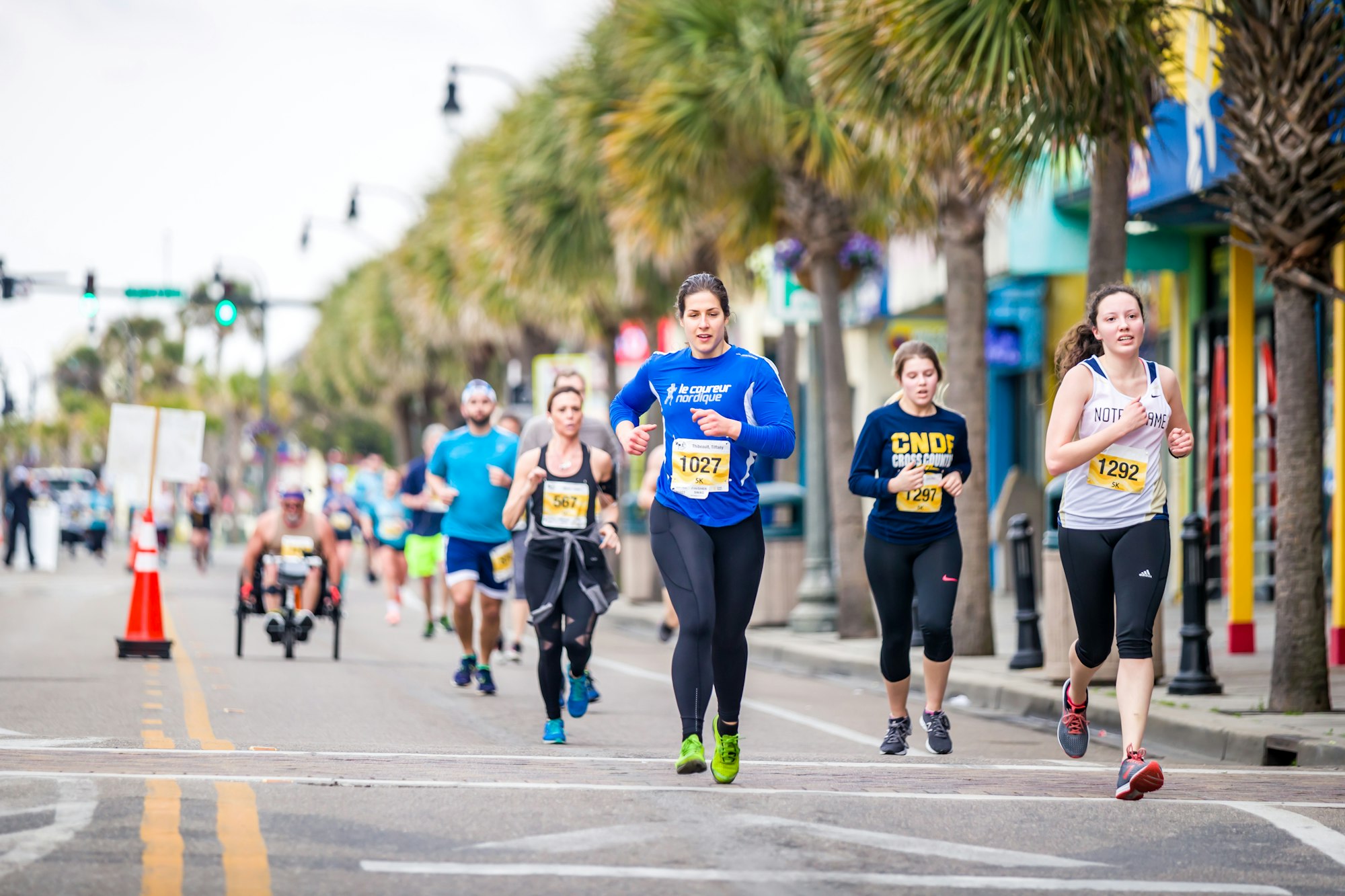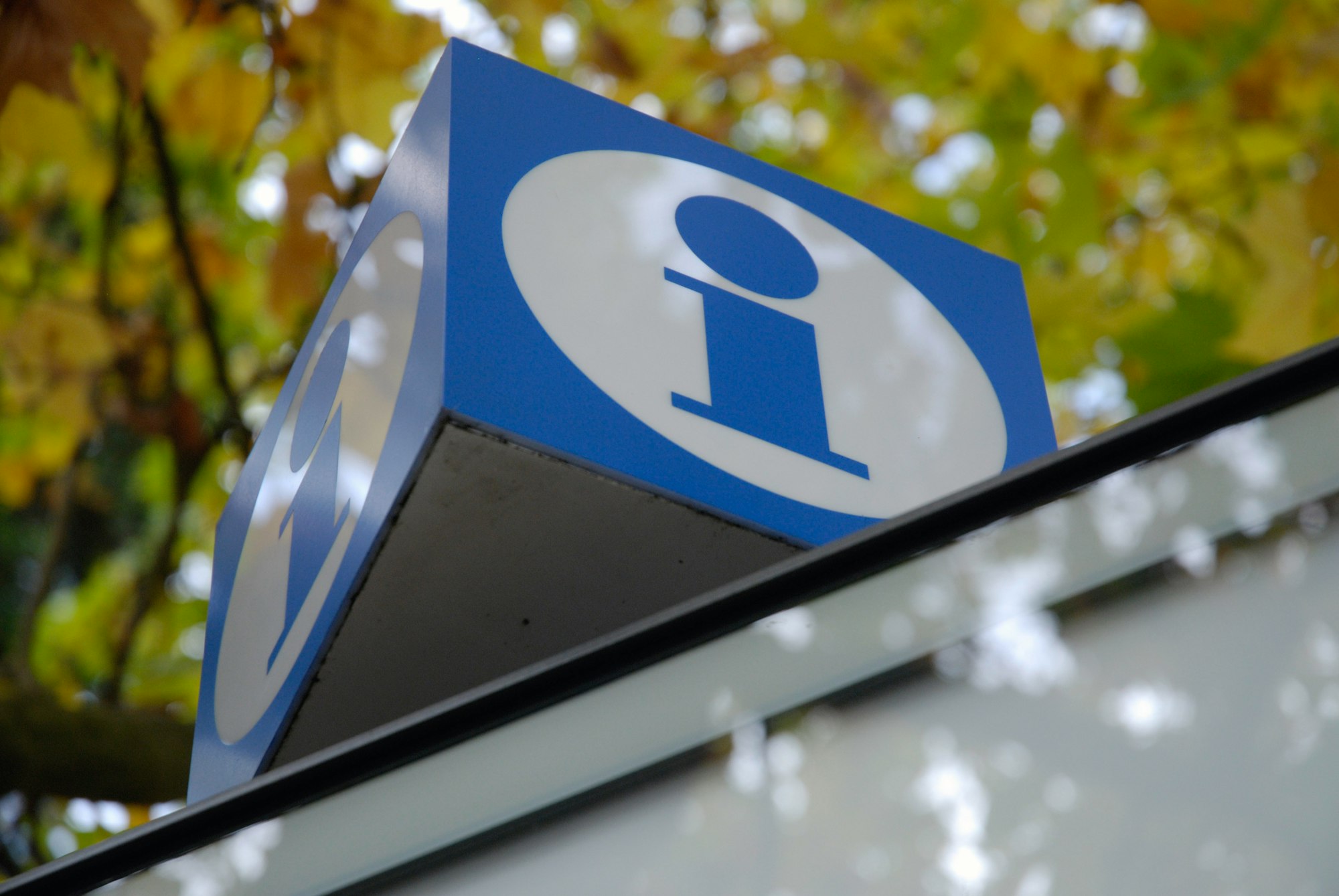Your First Marathon Tips
Tips & hard learned lessons for those looking to tackle their first marathon & come out of it in one piece!

Now racing events are back on in force maybe you're thinking of training up for your first marathon. It is a wonderful challenge to take on & well worth the effort, so if this is you I wish you all the best on the big day!
This article lists a series of tips I've learned over the last year of running mostly solo self supported marathons (11 in total + 3 ultras as of Dec 2021). Hopefully there's something in here that helps you prepare, or gives insight into something you weren't aware of going into an event.
Note I am in no way a fast runner, very much middle of the pack at best, so these are aimed at first time marathoners looking to complete, rather than you sub-3 hour beasts.
Choosing a Marathon

Marathons can broadly be split into City and Trail marathons.
City ones are those big organised events around somewhere like London, Berlin or New York. They tend to be huge, attracting people from all over, whilst notably also tend to be relatively flat, stick to tarmac & have plenty of support.
Trail marathons are (usually) smaller and feature a wider variety of terrain. They tend to be more undulating, require more confidence in your footing and take a bit more effort in terms of managing your pace.
Personally I absolutely adore Trail marathons, I find the variety makes it more rewarding & helps keep things fresh (important when you are running for 4 hours solid!)
However if it is your first time I'd strongly recommend picking a City marathon for 3 key reasons:
- The courses tend to be flatter
- The tarmac and elevation makes it easier to stick to a consistent pace, helping you settle into "the zone"
- The sense of comrade, supporters lining the street, will all help you push yourself through the final miles
Once you're comfortable with what it takes to complete a marathon, totally go check out some trail runs 😇
Another thing to note is the type of course you'll be doing; check out the route when signing up. For your first one I'd look for a good loop or point to point course where you see different sights for the entire of the 26.2 miles.
I'd avoid any "out and back" courses, and especially any where you do a smaller route over a few laps, as seeing the same part of the course again can impact your morale ("oh am I only at this street?! I know there's a good hour to go from here" or "I have to do another lap of that whole track?!")
If you tend not to do so well in crowds, also consider doing a solo self supported run, or having some family/friends act as an aid station for you along your own route. Coming up with your own route can be fun, you can tailor it to whatever works for you and you won't have to queue for the toilets.
Training

There are so many ways to train for a marathon and what worked for me may well not work for you.
There are also some very well recommended folks who build training plans, such as Jimmy Watkins for Running Punks who comes highly regarded. You can see his profile here and email runningpunks@gmail.com to talk about plans.
That said, here's some targets that I think helped me enormously when I hit them prior to my first marathon:
- Hit 50k weekly mileage on the run up to the event. Build up to it using the 10% rule (only increase you weekly mileage by a maximum of 10% each week, so say 20k one week, 22k the next, and so on) to avoid injury. It prepares your legs for the load you'll be putting on them on the big day
- Run at least one 32k run, that's your litmus test and a chance to test your gear, nutrition, hydration and pace out. On the day the crowd, adrenaline and general vibe will help pull you through the remaining 10k
The absolute most important takeaway for your training is, as The Running Channel say, Nothing New On Race Day.
Make sure on your long runs you are training in the same type of shoes, socks, clothes as you'll be using on the day. If it's an event with aid stations, check out what food they'll be stocking and test eating it on your training runs.
There's nothing worse then grabbing a new brand on energy snack on the day, just to find out it repeats on you badly. Or finding out that t-shirt you've been saving chafes something fierce after 5 mins.
Pre Race - The Night Before

It's commonly held that you should do a bit of carb loading before a marathon to help your body store extra carbohydrates to burn on the big day.
It's a balance though; you want to have enough energy, but also you don't want to be bloated on the day. As an example, I once carb loaded something fierce the day before a big run, only to get heart burn in the night and stitches in the morning after only a few km.
As with in the training section, you should be practising this on the run up, especially before your 32k litmus test run. Know what's enough for your body and what's too much. As a general rule I'd say eat slightly more in your evening meal than usual, rather than an all you can eat buffet.
Next, reflect on your plans for the race. Ideally you should have 2 plans, A and B:
- Plan A is your ideal, if everything goes to plan, this is what you want to aim for. It could be finish the marathon under 5 hours, or only stop at aid stations, whatever personally motivates you as a target
- Plan B is the back up, if everything goes wrong, what outcome will you still be happy with. For most folks this will be "finish the marathon, whatever it takes". For your first marathon don't worry about time, completing is completing is completing, it's just as impressive regardless of time.
Finally, it's worth laying out everything you need the night before so it's not a rush in the morning, whilst also ensuring you know what you need for the day (parking, registration times and cut offs, checkpoints and the like).
If there's a particular type of energy gel, food or drink you like, definitely pack it. Always worth being prepared in case the food at the aid station isn't what you've trained with.
Pre Race - The Morning Of

Apply....lubricant. Vaseline works well, as does more specialised stuff like Squirrel's Nut Butter. Even if you haven't chafed on training runs, that extra distance can make all the difference. Most folks need it around their groin and upper legs, and under their armpits.
If you are a guy, microporous tape works well over your nipples to stop chafing. Ladies have long since worked out more elegant solutions to this.
Race

Nutrition and hydration are critical on race day and it's worth you having a solid plan you've practised with before the big day.
This is all very subjective as well, horses for courses, but generally what I've found works for me is:
Food
Eat every 30 minutes, from the start. Aim for portions with ~20g of carbs, pick food with low fat and protein content as they are less likely to repeat on you. I'm afraid that means bacon sarnies are not the best of choices.
Gels and energy chews work well for marathons, but so do jelly babies, dried banana slices, malt loaf, Nakd bars, the list goes on. The main thing is to ensure you've practised with it!
Eating from the start will reduce the impact of "bonking", otherwise known as "hitting the wall", that is when your body runs out of readily available carbohydrates and starts having to burn fat for fuel.
Drink
At marathon distance it is critical you think about electrolyte replenishment. Hyponatremia; a condition caused by having low sodium levels in your blood, is a real risk when you're running for that long.
As you run you sweat out sodium and potassium (your "electrolytes"). Usually you get these back from the foods you eat, however when running marathon plus distances you can be sweating them out faster than you are taking them back in. As you drink more water, you actually dilute the sodium levels further, which can lead to Hyponatremia.
To avoid this, there are a few things you can use:
- Sports drinks like Lucozade Sport replenish your electrolytes
- You can get tablets you put in 500ml of water (e.g: SIS Hydration Tablets)
- You can also buy salt chews (e.g: Salt Sticks)
As for how much to drink, it wholly depends on a range of factors. How hot is it, how humid is the day, how hard are you running, how much do you personally sweat. Again all good things to cover during training. A good guide is 500ml an hour, however going by when your body tells you it's thirsty is totally valid as well.
Other Tips
Stick to your own pace & run your own race. Don't let other runners passing you push you to a faster pace, only to burn you out early. Another great Running Channel saying is "Comparison is the thief of joy" and it's so true.
You'll likely be tempted to explode out the gates when it starts, everyone does, sure know I still do. If you do that, just make sure to return to a sustainable pace as soon as you can (usually when you've passed any spectators you know !)
It's ok to take walking breaks, it's 100% recommended to walk any hills! Personally I tend to break into a power walk every 30 minutes, eat some food, make sure I've taken on some water, then run again.
No matter how much you've trained, you will reach a point when it absolutely sucks (coincidentally usually when you hit the wall too, funny that). Here's some things you can do to keep pushing yourself forward through it:
- Breathing exercises help, I especially like the "Breath of Fire", breath deeply in through your nose, then out through your mouth. Focus in on your breathing and try to clear any thoughts from your head. Practise doing this during training, it really does help, especially if you find yourself obsessing over remaining distance, or a pain you're feeling
- Music is free energy, personally I only put the headphones in when I hit this point. Have an upbeat playlist you know will perk you up, or a funny / interesting podcast you can sink into
- Food == Mood, ensure you are eating enough, maybe save something you especially like for when you hit this point. Note though it does get harder to eat solids to further you run, so we're talking an especially yummy flavour of gel here, not a slice of pizza (that comes later)
Don't clock watch; I'd actually encourage you to switch your sports watch / phone / tracker to a screen that doesn't show you the remaining distance. Nothing, and I do mean nothing, ticks down slower than the last 10k when you're looking at your watch every 2 minutes.
Post Race

Congratulations, you've finished! An incredible achievement, now you need to ensure you're looking after yourself and aiding your recovery.
Firstly eat within 30 mins of finishing. There is the 4:1 carb to protein recovery ratio which is the ideal mix of macro nutrients to help kick start recovery.
Now funnily enough, one thing that has that ratio is Chocolate Milkshake, so here's a great excuse to go chug one. If you are vegan Tailwind do a recovery drink that I swear by. Tastes just like chocolate milkshake.
You may find it difficult to eat solids after as the blood will have been drawn away from your stomach. Another good reason to focus on recovery drinks instead for immediately after the race.
Once you start to feel your stomach again it's time to go for some tasty, tasty goodness. We tend to get a big old pizza takeaway with all the trimmings after a big run, go with whatever you crave, guilt free.
A final one from experience, I find laying on the couch for extended periods after a marathon makes me feel significantly worse, so try to keep the blood flowing through your legs rather than crashing completely.
Final Tips

If you take one thing away from this, I'd like it to be Nothing New On Race Day. The absolute best thing you can do for your first marathon is train well, and practise everything, beforehand. I once tried a new lacing technique the day of a marathon and gave myself tendonitis across the top of my foot that took months to clear, all because I hadn't practised it and realised it wouldn't work for me first.
Next, really do come up with things you can do when you hit that dreaded wall, that will help pull you out of the funk. It's inevitable you'll hit a morale dip, everyone does, and being prepared to fight it is half the battle.
Finally; remember to enjoy it! That feeling of crossing the finish line after 26.2 miles is unparalleled, it is transformational & worth every step to get there.
